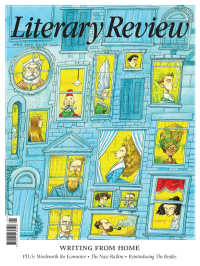John Guy
When in Florence
Machiavelli: His Life and Times
By Alexander Lee
Picador 762pp £30
On the second floor of the Palazzo Vecchio in Florence is the Cancelleria, where Niccolò Machiavelli worked as a secretary. Although now shorn of its original height, shape and much of its natural light thanks to Vasari’s design for the adjacent Guardaroba, with its celebrated cycle of painted maps affixed to wooden cabinets, the room still gives goose pimples to those able to conjure up visions of its most illustrious former occupant.
Well aware of the confusing variety of perspectives emerging from an explosion in Machiavelli studies in recent years, Alexander Lee aims to provide as detailed, accessible and authoritative a portrait of the man as possible. His concerns are integration, synthesis and totality: he seeks to position Machiavelli securely in the culture, society and politics of his time and to consider the full range of his writings, rather than concentrating narrowly on Il principe. He’s keenly aware of the need to read Machiavelli’s life forwards – to avoid seeing his past through his later life or ascribing to him a foresight that he never possessed. What we get is what it says on the tin: an utterly absorbing month-by-month, often day-by-day account of Machiavelli’s life and career, contextualised through a near-epic history of Florence’s involvement in the Italian Wars, from the city’s expulsion of the Medici in 1494 to the sack of Rome in 1527.
The son of a public debtor and almost invisible to us before the age of twenty-nine apart from through a few entries in his father’s diaries, Machiavelli secured appointments as the Florentine Republic’s second chancellor and as secretary of the Dieci di Balìa – the committee responsible for military and

Sign Up to our newsletter
Receive free articles, highlights from the archive, news, details of prizes, and much more.@Lit_Review
Follow Literary Review on Twitter
Twitter Feed
Under its longest-serving editor, Graydon Carter, Vanity Fair was that rare thing – a New York society magazine that published serious journalism.
@PeterPeteryork looks at what Carter got right.
Peter York - Deluxe Editions
Peter York: Deluxe Editions - When the Going Was Good: An Editor’s Adventures During the Last Golden Age of Magazines by Graydon Carter
literaryreview.co.uk
Henry James returned to America in 1904 with three objectives: to see his brother William, to deliver a series of lectures on Balzac, and to gather material for a pair of books about modern America.
Peter Rose follows James out west.
Peter Rose - The Restless Analyst
Peter Rose: The Restless Analyst - Henry James Comes Home: Rediscovering America in the Gilded Age by Peter Brooks...
literaryreview.co.uk
Vladimir Putin served his apprenticeship in the KGB toward the end of the Cold War, a period during which Western societies were infiltrated by so-called 'illegals'.
Piers Brendon examines how the culture of Soviet spycraft shaped his thinking.
Piers Brendon - Tinker, Tailor, Sleeper, Troll
Piers Brendon: Tinker, Tailor, Sleeper, Troll - The Illegals: Russia’s Most Audacious Spies and the Plot to Infiltrate the West by Shaun Walker
literaryreview.co.uk